The best dog breeds for home security combine loyalty, intelligence, and a protective instinct to create a formidable line of defense. Breeds like the German Shepherd, Rottweiler, and Doberman Pinscher are a few breeds renowned for their strong guarding instincts and natural vigilance. With proper training and socialization, these dogs become not only reliable protectors but also beloved members of the family, offering both security and companionship.
Most Americans (52%) don’t feel safe, according to a recent poll. In addition to a nagging feeling of unease when out and about, nearly half of respondents also worry about their safety when home alone (42%) and avoid living on the ground or first floors of apartment buildings out of fear of home invasions (45%). The leading safety measures Americans take to protect themselves in their homes are buying security systems and getting a dog.
While security systems can be a deterrent, they aren’t able to physically defend you. In case of a break-in, you can only hope help will arrive in time. A guard dog on the other hand deters and protects. Dog ownership improves security on a larger scale as well: Neighborhoods with more dogs experience less crime — including murder and assault, researchers from the Ohio State University found. Their study results suggest that more people walking their dogs puts more “eyes on the street,” which discourages criminals from committing both violent and non-violent crimes.
What makes a good guard dog?
When it comes to choosing the best dogs for home security, beyond breed specifics, certain traits become essential weapons in their protective arsenal. Here’s a list of qualities to look for in your furry guardian:
Deterrence:
- Size and Presence: A larger dog naturally commands attention and can deter potential intruders.
- Barking Prowess: A loud, confident bark can scare off anyone with ill intentions. Look for breeds known for booming voices.
- Territorial Nature: Some dogs instinctively guard their turf, making them more vigilant against anything out of the ordinary.
Alertness and Agility:
- Sharp Senses: Keen sight, hearing, and smell allow a dog to detect potential threats early on.
- Energy and Stamina: A dog who can respond quickly and chase after any suspicious activity is crucial.
- Trainability and Intelligence: A dog who readily learns commands and understands what constitutes a threat is invaluable.
Temperament and Compatibility:
- Loyalty and Protectiveness: A strong bond with your family instills a natural desire to protect them.
- Confidence and Courage: Timid dogs might hesitate when faced with danger. Look for breeds known for their bravery and unwavering presence.
- Socialization and Familiarity: Ensure your chosen dog is well-socialized and comfortable with strangers. Avoid breeds prone to aggression without proper training.
Now, before you run to the next kennel, please be aware that every guard dog needs lots of training, no matter what the breed (mutts can make great guard dogs, too!). Of course this applies to all dogs, but a guard dog without proper training can turn aggressive (which is not the same as protective!) and is a liability and a safety risk. Also don’t forget that every dog needs love and affection — even dogs with jobs. With that in mind, please check out our list of the best dog breeds for home security. StudyFinds reviewed the breed recommendations by experts from ten different websites to find the top five guard dogs. Got any feedback? Please let us know in the comments.
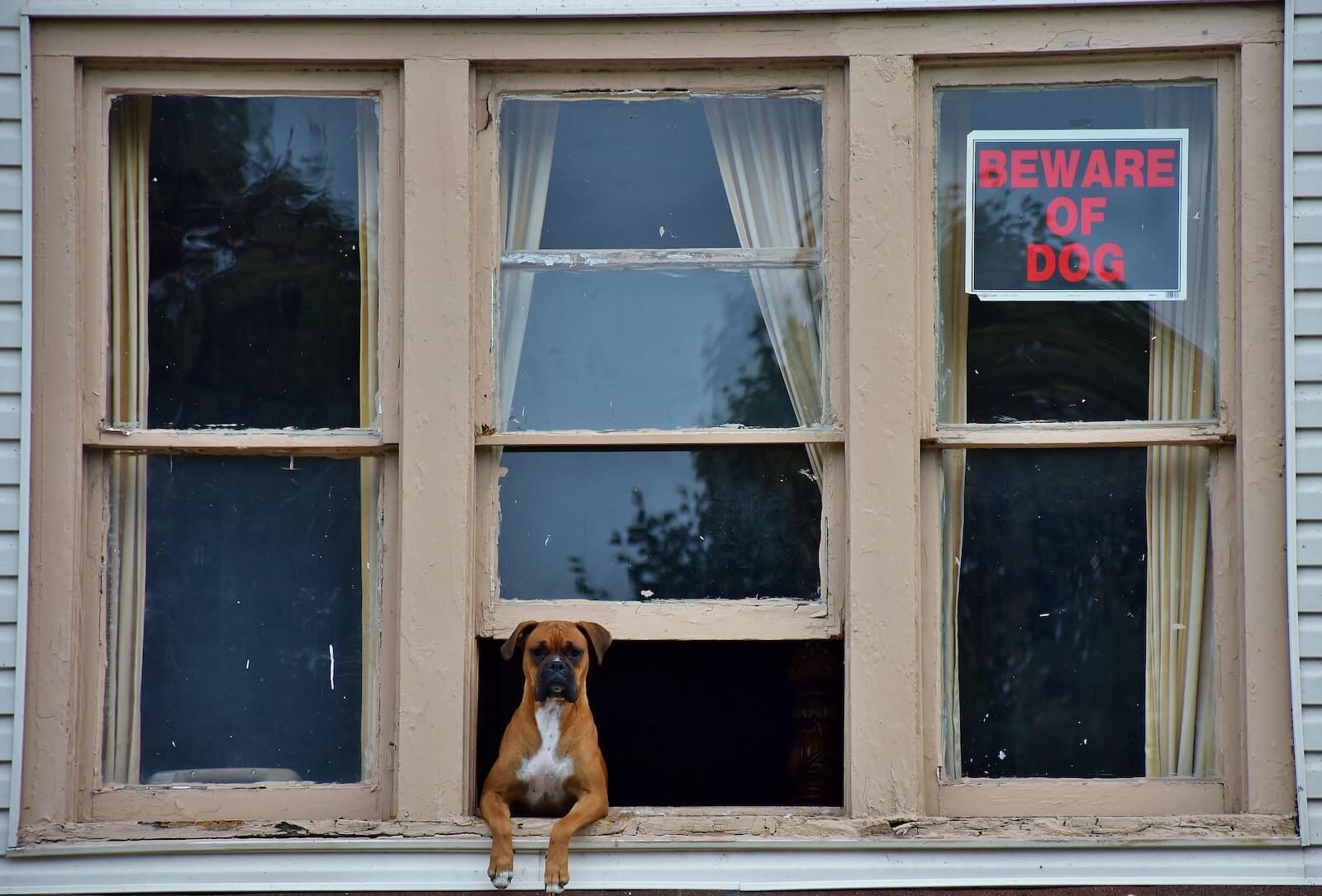
The List: Best Dog Breeds for Home Security, Per Canine Experts
1. German Shepherd
Close your eyes and think: “home security dog.” Your brain likely comes up with the picture of a German shepherd. Unsurprisingly, ten out of ten experts recommend this breed for home security, as they are “gentle family pets and immensely courageous — unafraid to put themselves in danger to save a loved one, as many of them do as police and military dogs,” says Care.com.
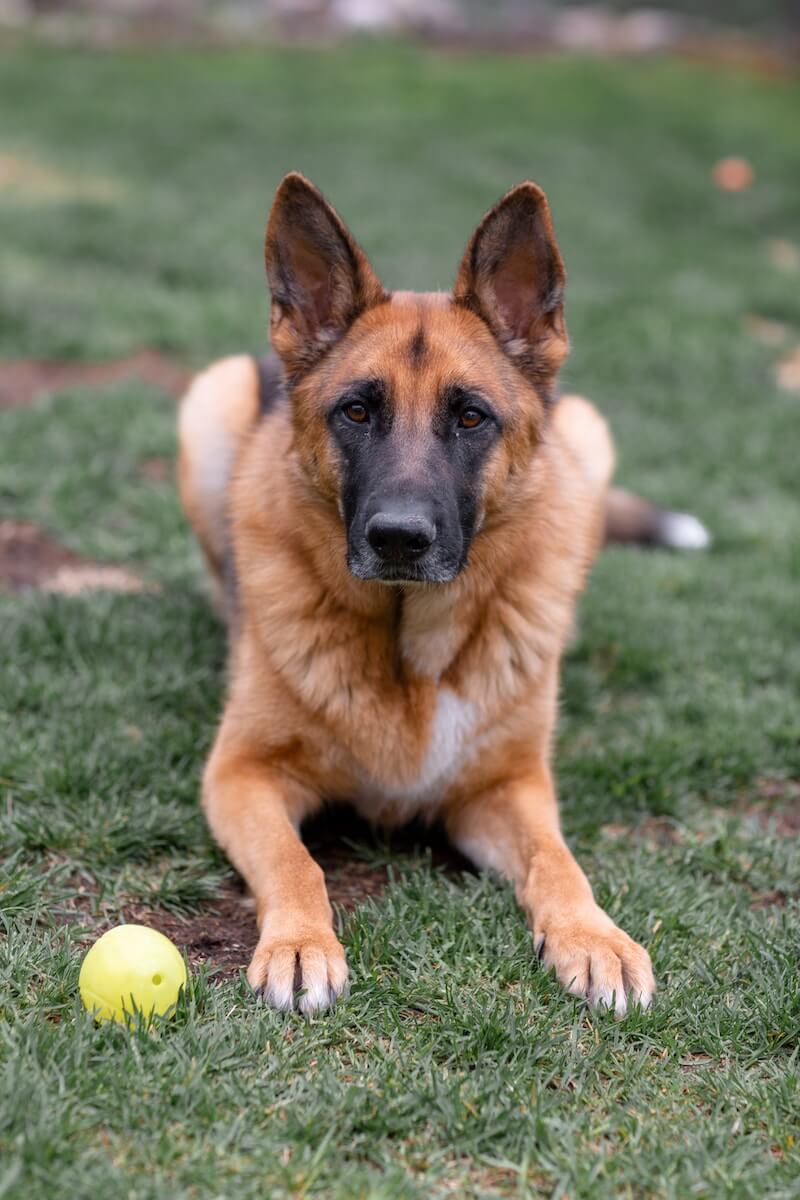
The highly intelligent breed is the top guard dog for several dog experts, including the ones at Canine Journal: “German Shepherds, in our opinion, top the list of best family guard dogs due to their natural instincts to listen, learn, and obey. They are both menacing in their appearance, and loving in their nature, but will respond to a command at any moment’s notice. They have thick fur, which makes them respond well to colder temperatures, and it adds to their toughness. They are very understanding of their homes, and will be wary of intruders. They have fantastic size and can take down any sized human without much trouble.”
“A favorite of the police, these dogs are easy to train, fiercely loyal, have great stamina, and are great under pressure,” knows PetsRadar. “Not only that; they make wonderful pets who love to play with toys. […] So as well as a great guard dog, a German Shepherd is also a brilliant friend.”
2. Rottweiler
Rottweilers are also excellent guard dogs and their “deterrent factor” may be even higher than a German Shepherd’s. These guys are massive! But while they look scary, they are affectionate with their people, as well as versatile. “There is apparently no limit to the jobs they can perform, like herding and carting to name a few. Tire them out enough and they may even pop a squat in your lap,” writes Care.com.
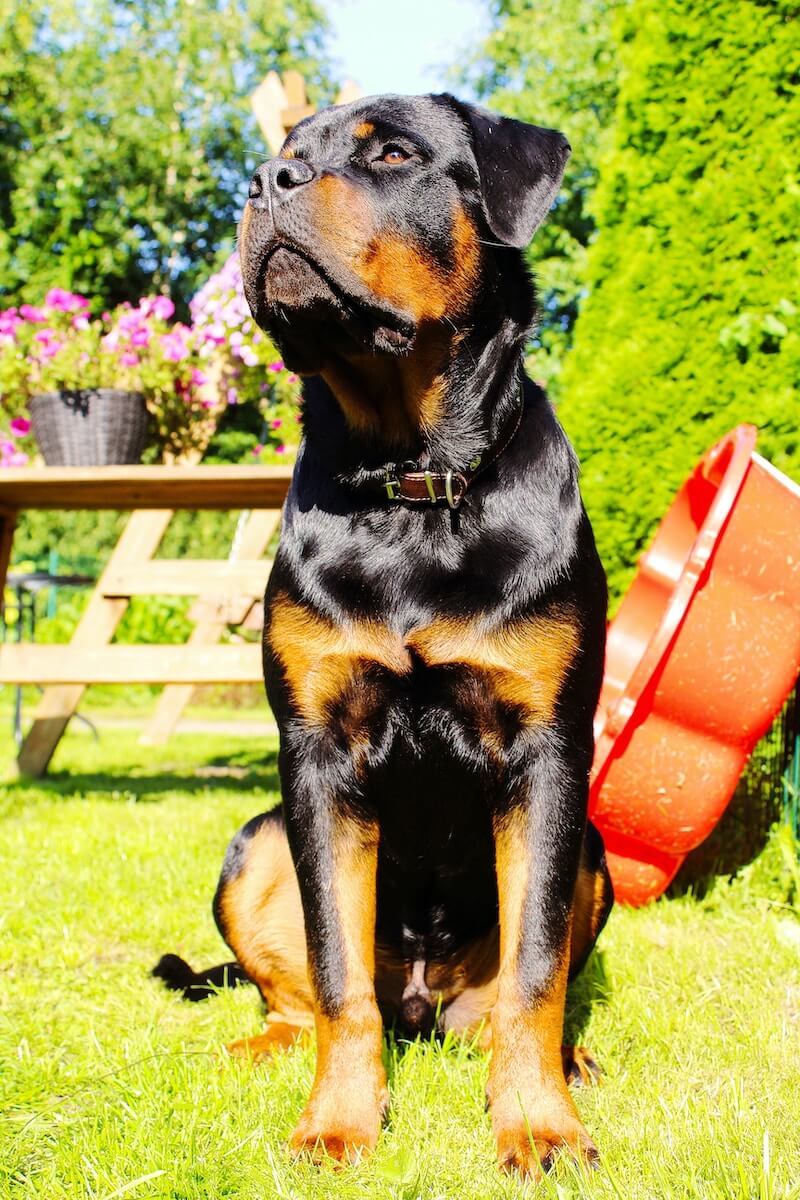
However, they are not as family-friendly as German shepherds and may be not the best choice for homes with young children; partially due to their strong build, but also because of the breed’s other traits. “The Rottweiler, if not properly trained, is too aggressive of a breed to have around small children,” cautions Canine Journal. Of course intensive training is non-negotiable with any large dog, especially in a family setting, and Canine Journal walks it back a bit after their warning. “The Rottweiler is great with families if brought up properly, and even small children are safe under the right conditions. Their intelligence can make them very obedient and despite their aggressive snarl, these dogs are very loving and ready-to-please animals.”
Wag! seems less concerned about mixing “Rotties” with kids: “The Rottweiler was bred to guard cattle and the family, and with their size of about 100 pounds, they can be ferocious beasts when they need to [be]. However, they still know how to be lovable pets and understand when it is time to be gentle and sweet with kids and other animals.”
3. Doberman Pinscher
The Doberman Pinscher is another “classic” protective breed that, fun fact, originates in Germany, just like the German Shepherd and the Rottweiler. This breed got as many experts’ recommendations, but their fearsome image combined with their athleticism secured them the third spot (except for families with children; more on that later). “Their reputation and name precedes them as the ultimate guard dogs,” writes security equipment provider Kuna on their blog. “Intelligent, determined, loyal, fearless, and vigilant, […] Doberman[s] have been serving as the notorious guard dogs in Germany since the late 19th century. Their muscular stature allows for high speed and endurance, as well as effective attacks when imperiled by threatening strangers.”
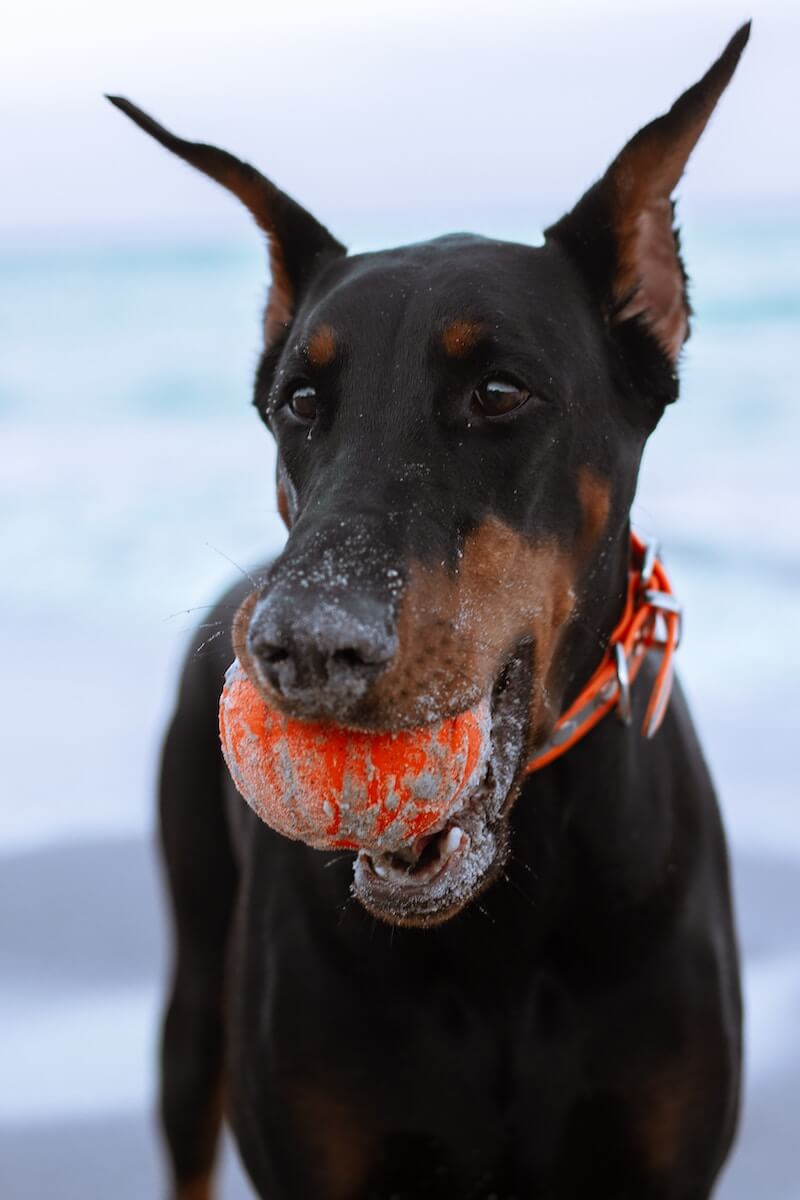
Reader’s Digest also thinks highly of these dogs: “One of the best guard dog breeds, the Doberman is a sleek, powerful, fearless, and fast dog. Considered the fifth-smartest dog breed in the world, it is loyal in protecting its people and always alert. Dobermans also bark a lot. If they need to, they will take a threat seriously, pinning an intruder against the wall or cornering it until humans take charge. When they’re off duty, Dobermans can be big-time goofballs. They have high energy needs and make great running companions.”
Unfortunately, like Rottweilers, these dogs are also not necessarily great for homes with young children, as Canine Journal (again) points out. “The breed is very alert and cautious of people it is not familiar with, but will respect the command of their owner and this makes them great for protecting families.” But “they should be raised in the household with children and not brought into a house with small children after they are puppies.”
4. Bullmastiff
For a “gentle and loving” family protector, consider the bullmastiff, suggests Canine Journal. “The Bullmastiff has excellent instincts and thrives in family settings, as they learn quickly who their ‘pack’ is and will do everything they can to protect it. They are very aware of everything going on around them, and their intimidating look makes them a great choice at fending off intruders without putting your children at risk. […] To get the most out of this breed, it should be raised early with the family and trained constantly through its growing stages. With that being said, once it is familiar with its home and who its family is, this breed is gentle and loving, and will do great at being a part of your family.”
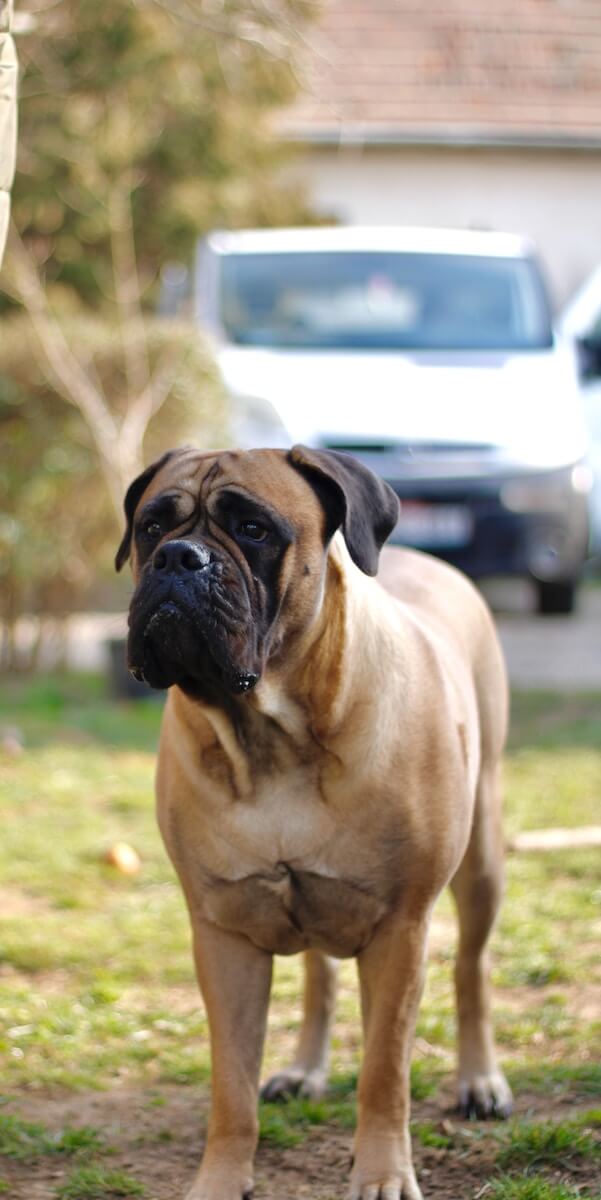
Safe for families, dangerous for burglars: If worse comes to worst, this dog is a force to be reckoned with! “You’ve probably heard of the phrase, ‘his bark is worse than his bite.’ This may be true for many dog breeds, but the same can’t be said for the Bullmastiff. This breed has the highest amount of bite force of any dog at 552 pounds per square inch – that’s around three times higher than the average dog,” knows PetsRadar.
According to Kuna, Bullmastiffs are a great guard dog choice for families if you can handle their size (and their appetite) — they only have one downside: “Bullmastiffs are highly defensive of strangers due to their unbounding love and affection for the family. An average Bullmastiff weighs around 150 pounds, making it capable of taking down humans of larger builds. […] The only hitch to keeping a Bullmastiff is coming to grips with their perpetual slobbering.”
5. Akita
If you’re looking for a dog that would 100% die for you and don’t mind making some social sacrifices in return, meet the Akita. These dogs are natural born protectors. “Akitas are one of the most loyal dog breeds. Bred for guarding royalty and nobility in feudal Japan, this courageous and alert breed is naturally suspicious of strangers. Akitas will keep watch over you and your family at all times. This breed takes this task seriously and will typically perform its guarding duty with little to no [guarding!] training,” mentions The Spruce.
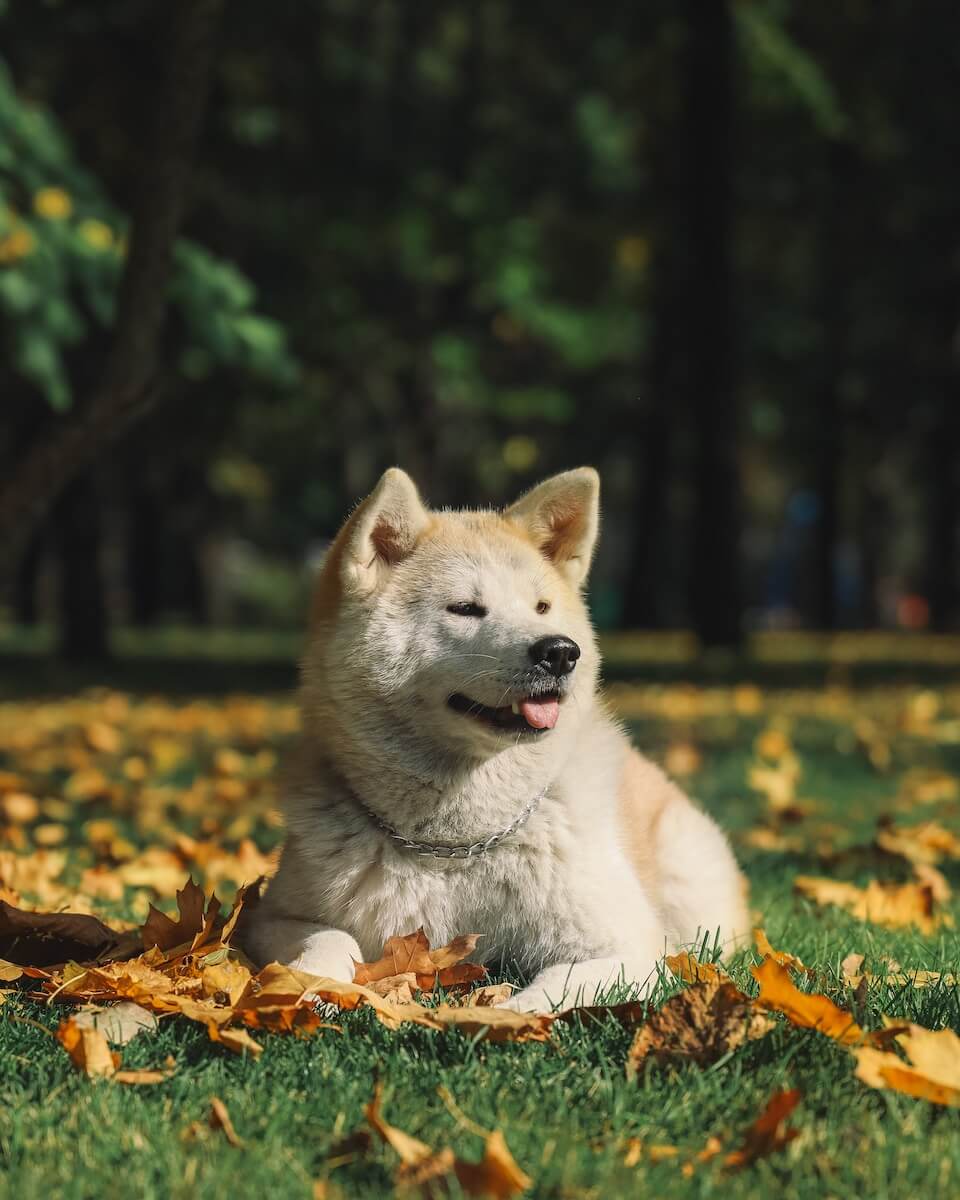
But while they may need little encouragement to guard, Akitas are serious working dogs and can’t just be thrown into the “family mix,” as Kuna explains. “The fearless and bold Akita is a breed that deserves the utmost praise and respect. […] Akitas are famous for their strong protective instincts, intense suspicions of other animals and strange people, and their rigid loyalty to only their owner families makes them one of the worthiest companions to men. […] However, here’s a word of warning; Akitas do not cohabitate well with other animals. In addition, their loyalty and trust can only be earned by an experienced and firm owner. So, this breed is to be steered clear of if you have never had a dog before.”
Reader’s Digest seconds this: “This stocky, curly-tailed Japanese mountain dog is revered in its native country as a symbol of good health and long life, according to the [American Kennel Club] AKC. Akitas are fiercely protective by nature […] Typically, they bark only when there’s a really good reason […]. Akitas can be aggressive with other dogs and need to be socialized early on to interact appropriately with them as well as with people.”
Note: Always thoroughly research any dog breeders to avoid obtaining a dog with health or behavioral issues or supporting a puppy mill. This applies to all dog breeds. In addition, purebred dogs can be prone to specific health issues. Be sure to read up on any breed you are considering.
You might also like:
Sources:
- Good Housekeeping
- Reader’s Digest
- The Spruce
- PetsRadar
- Care.com
- Woman’s Day
- Kuna Systems
- Country Living
- Wag!
- Canine Journal
Note: This article was not paid for nor sponsored. StudyFinds is not connected to nor partnered with any of the brands mentioned and receives no compensation for its recommendations. This post may contain affiliate links.
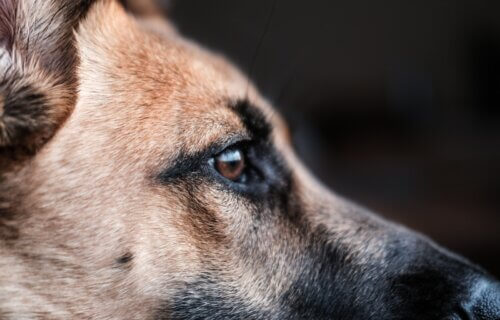
I’d give a Cane Corso a good look too. Recent studies suggest they are as intelligent as any here, more potent than any on the list than perhaps the other Mastiff, and pretty docile with the family unit.
Great intimidation factor too standing 27″ tall and over 110 for the males (and many females) should the need arise.
What bout sheppard mixed what do they do tell me cause mines friendly and don’t bark at people
If you noticed… they’re just listing pure bred dogs!
Want the best family / property guardian yet the most gentle loving dog ever? Get a Great Pyrenees. Calm, gentle, HIGHLY observant, HIGHLY intelligent, intuition like no other, fiercely protective when needed, utterly fearless of any person or animal and loyal to the point where they won’t think twice about dying as long as they’re protecting you. The best part is that they keep all this bottled up inside and remain a lazy cuddly floof and only let it out when absolutely needed. The biggest downside is that they’re smart enough to outsmart you and that can make training challenging, they bark, A LOT, they love to roam and the hair. The few negatives aside, I’ll never have another breed of dog, and I’ve had shepherds, hounds, rotts and many others. From here on out I’ll always have a male pyr. (plus your insurance company won’t raise your rates)
They will protect you the same way, they do not know fail or quit.
11 on one, and he killed 8……by himself…..BY HIMSELF…….and he wasn’t even mature yet!
https://people.com/pets/great-pyrenees-named-casper-attacks-coyote-pack-to-protect-sheep/
The only two guardians I would put above a Pyrenees are the the Kangal and Caucasian Shepherd.
https://animals.net/wp-content/uploads/2018/08/Great-Pyrenees-4-650×425.jpg
I disagree with this list. All of those dogs are difficult to manage unless provided with stringent training most people are unable to give, get or afford. We live in a culture where dogs are symbolic and under appreciated by their owners. The President of the United States is a good example of someone unfit to own a dog or control and train one.
Great informative article for people just beginning domestic canine relationship. Thank you. Was surprised that no reference to smaller breeds included in your list of protective good family dogs. What happened to Lhasa Apso and Sheba Enu size in your article?
Yes they are good but another top protection dog highly intellegent is the belgian malinois also now mostly used by military and police
98% of people CAN NOT control them effectively
Leaving Pitbulls out of this list is doing an amazing breed a great disservice. They’ve gotten such a bad reputation thanks to the monsters who choose to make them fight. I’ve had pitbulls all my life since I was a child myself and my beautiful little girl that I have now would die to protect me and my children. I have never had a pitbull turn on me and no one that I know personally has either. Dobermans, Akitas and Rottweilers are just as aggressive and, in my opinion, just as safe to have around children. They’re wonderful dogs and it saddens me to see how they’re vilified.
The best free is two for me and I have them both personally the first one is a German Shepherd she was very good she wouldn’t let nobody come upstairs near the bedrooms especially if she didn’t know you and you never been upstairs you wasn’t allowed up there and I just got my Rottweiler a year ago and she’s always alert and looking and she will bark and let me know and then I don’t see them and all I got to do is watch her head and I know somebody’s there or somebody’s behind me they’re too best of and I know that personally bye-bye
My favorite is the Doberman and has been exceptionally good with our family and grandkids. We have always owned a female pup and had them spayed early on. They are very loyal, protective, and trainable, and very active guarding our acreage from uninvited visitors, rats, squirrels all behind our security gated fenced property. She loves to run with the kids! We have outlived all that we have owned and appreciated their protection. Approaching 80 gives us added comfort living in the country.